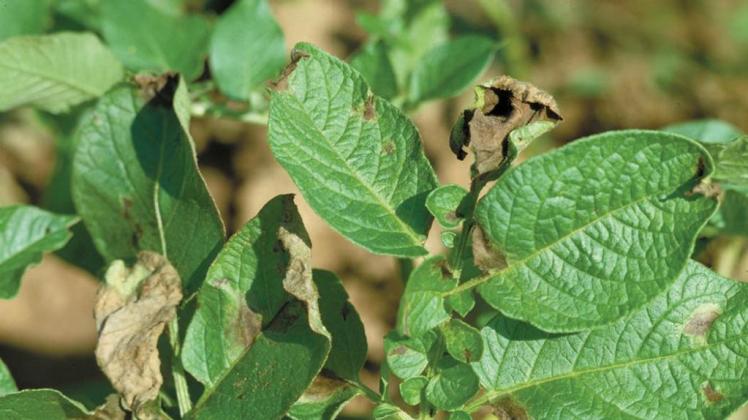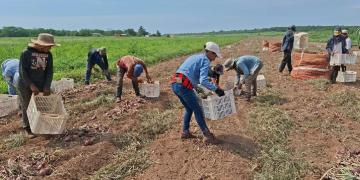Europa: Extended IPM programme research shows blight fungicide reductions possible
Cultivation of cisgenic or conventionally bred, late blight resistant potato varieties in combination with pathogen population monitoring and a ‘do not spray unless’ strategy resulted in an 80-90 per cent reduction of fungicide use compared with.

A team of scientists from Wageningen University and Research, The Netherlands, and Teagasc - the Irish Agriculture and Food Development Authority - published the findings in the European Journal of Agronomy.
The international team of scientists developed a so-called IPM2.0 approach which includes late blight resistant varieties and builds on the principles of IPM.
IPM2.0 adds three extra components to the current control strategy for potato late blight: use of resistant varieties, monitoring of naturally occurring genetic adaptations in the pathogen and a ‘do not spray unless’ strategy, which dictates that a grower only needs to apply fungicides when a resistant variety is at risk of infection due to pathogen adaptation.
The team looked at issues such as efficacy of disease control and the resulting environmental impact during cultivation of susceptible potato variety Désirée and two different resistant potato varieties: Sarpo Mira, developed through conventional breeding, and a resistant version of the Désirée which received a resistance gene from a wild relative through cisgenesis.
The susceptible potato variety and two resistant ones were cultivated, comparing common practice, with fungicides applied on a weekly basis, and the IPM2.0 method. The research was carried out in the Netherlands and in Ireland over several years.
Using the IPM2.0 strategy on susceptible variety, Désirée resulted in an average fungicide reduction of 15 per cent. Both resistant varieties, however, remained healthy with an average 80 to 90 per cent reduction in fungicide input, according to the researchers.
Fuente: https://www.fginsight.com/news/news/extended-ipm-programme-research-shows-blight-fungicide-reductions-possible-61455




